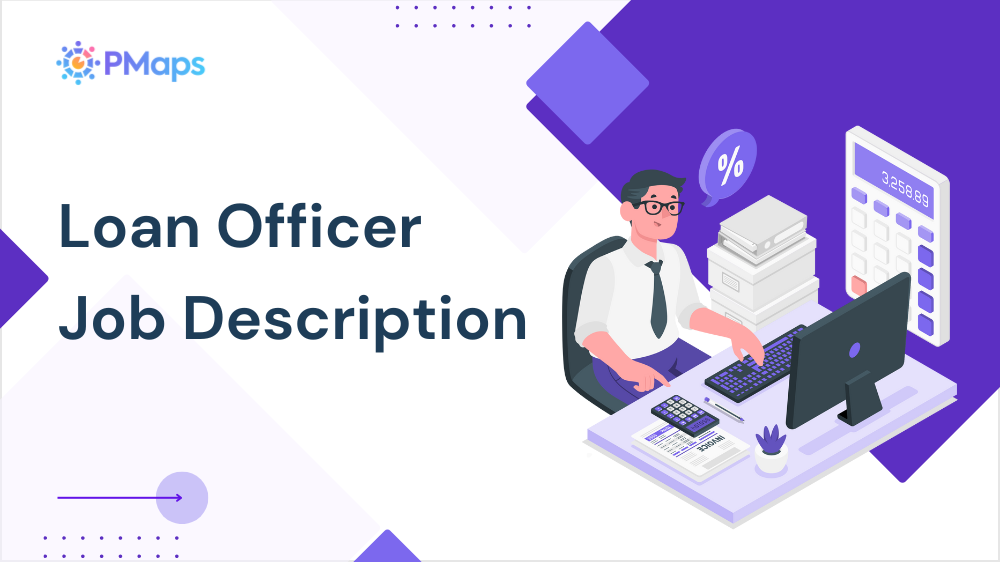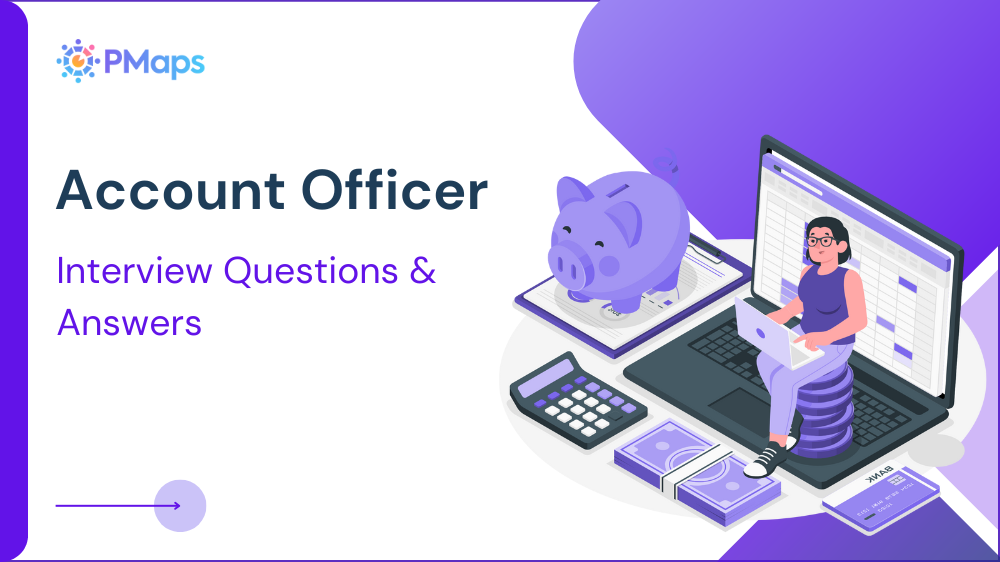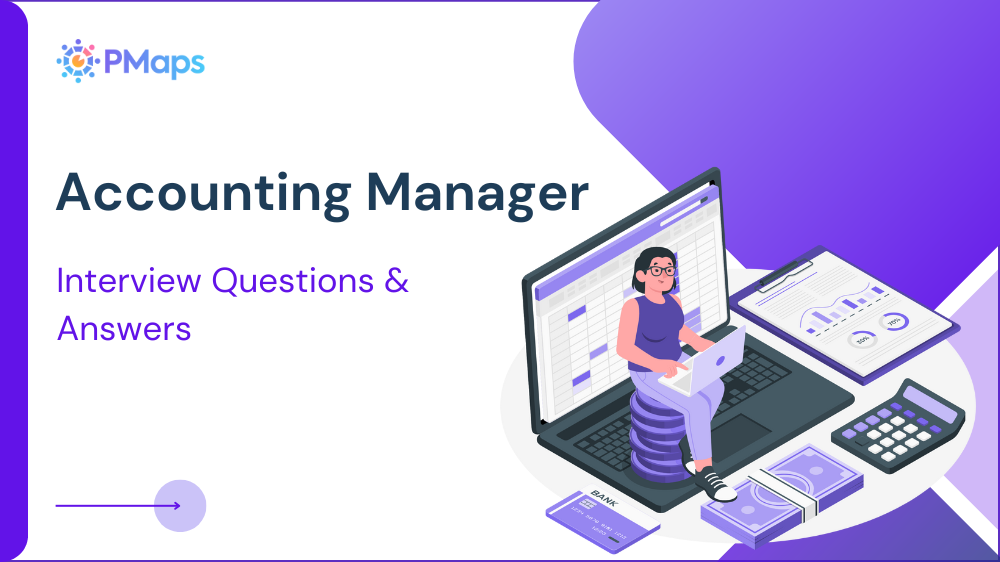.png)
Loan officer interview questions are designed to evaluate more than just a candidate's financial knowledge. They dig into traits like credibility, negotiation acumen, and the ability to build trust qualities that directly impact lending outcomes and customer satisfaction. Whether you're hiring for a bank, a mortgage firm, or a financial services provider, being prepared with the right interview structure is crucial.
This guide walks you through the most relevant interview questions and answers for loan officer roles. It includes general questions, behavioral assessments using the STAR method, situational scenarios to test judgment, and technical questions specific to the lending industry. Each section offers sample responses and insights tailored for hiring managers seeking reliable, compliance-ready talent.
Promising on job interview? Let the Loan Officer Assessment confirm real expertise.
General Interview Questions for Loan Officers
Interview questions and answers for loan officer roles should assess both technical grounding and interpersonal judgment. These initial questions help reveal how candidates perform under pressure, handle client objections, and maintain regulatory compliance key indicators of long-term success in financial services.
1. Can you walk me through your experience in loan origination?
What it assesses:
Practical exposure to the lending process, including pre-qualification, documentation, underwriting, and closing.
What to listen for:
Familiarity with loan types (home, personal, auto), clear explanation of workflow, past volume of loans processed, and use of financial software.
Sample ideal answer:
“In my previous role at a regional credit union, I managed end-to-end origination of both personal and home loans. I handled initial consultations, collected client documentation, ensured compliance with underwriting standards, and coordinated with credit analysts and legal teams for closure. On average, I processed around 25 loans monthly with a 92% approval rate.”
2. How do you handle customer objections during the loan process?
What it assesses:
Emotional intelligence, client-handling skills, and ability to explain loan policies diplomatically.
What to listen for:
Empathetic tone, confidence in financial explanation, ability to handle pressure, and solution-oriented mindset.
Sample ideal answer:
“If a client is concerned about high interest rates or loan terms, I first acknowledge their concern without becoming defensive. Then I explain how the rate is calculated and walk them through alternatives if available. Once, a client hesitated due to variable interest terms. I compared fixed-rate options with long-term impact scenarios using real numbers, which helped them make an informed decision.”
3. How do you stay updated on lending regulations and financial policies?
What it assesses:
Commitment to compliance, continuous learning, and risk management awareness.
What to listen for:
References to industry publications, certifications, regulatory bodies, or internal compliance training.
Sample ideal answer:
“I follow updates from the Reserve Bank of India and subscribe to newsletters from financial law firms. Our bank also conducts quarterly compliance refreshers. In 2024, I completed a certification on NBFC regulatory updates, which helped me revise internal documentation procedures to match the new norms.”
4. Describe a time you had to explain a complex loan product to a client.
What it assesses:
Communication clarity and ability to simplify technical information.
What to listen for:
Use of analogies, breakdown of key terms, and the candidate’s adaptability based on the client’s financial literacy.
Sample ideal answer:
“I once worked with a self-employed borrower unfamiliar with hybrid loan structures. I explained the fixed vs. floating interest breakdown using a rent analogy—comparing fixed EMI to stable rent and floating to market-based changes. I also showed amortization charts, which helped him confidently proceed with the application.”
5. What steps do you take to ensure a high loan approval rate?
What it assesses:
Diligence, documentation accuracy, and strategic alignment between loan offerings and applicant profiles.
What to listen for:
Emphasis on detailed screening, creditworthiness checks, early red-flag identification, and cross-functional coordination.
Sample ideal answer:
“I start with detailed financial profiling—checking income consistency, existing liabilities, and credit score history. If anything’s borderline, I suggest loan adjustments before submitting. I also coordinate closely with underwriters to avoid rework. This pre-screening process helped me maintain a 95% first-pass approval rate last year.”
Behavioral Interview Questions for Loan Officers
Behavioral questions help uncover how a loan officer has responded to real-life challenges. These responses offer valuable clues about their judgment, ethics, and communication style traits that often matter more than technical ability in high-stakes lending roles.
1. Tell me about a time when you had to deal with an uncooperative client.
What it assesses:
Conflict resolution, diplomacy, and resilience in high-stress interactions.
What to listen for:
Composure, ability to de-escalate, and client-centric communication.
Sample ideal answer:
“A client was upset about loan rejection due to poor credit. I acknowledged their frustration, explained the credit parameters calmly, and suggested steps to improve their score. Six months later, they reapplied and were approved.”
2. Describe a situation where you spotted a potential fraud or red flag during loan processing.
- What it assesses:
Risk awareness, vigilance, and ethical judgment. - What to listen for:
Early detection, documentation validation, and proper escalation process. - Sample ideal answer:
“I noticed mismatched income figures in two submitted documents. I verified them with the employer, flagged the discrepancy to compliance, and the case was immediately withdrawn from processing.”
3. Share a time when you had to meet a tight deadline while maintaining accuracy.
- What it assesses:
Time management and ability to prioritize without compromising quality. - What to listen for:
Planning, calmness under pressure, and commitment to accuracy. - Sample ideal answer:
“During quarter-end, I had to process 12 loan files in three days. I created a checklist system, batched similar cases together, and reviewed each twice before submission. All loans were approved without rework.”
4. Describe a time you helped a client choose the right loan product despite their initial reluctance.
- What it assesses:
Influence, product knowledge, and consultative selling skills. - What to listen for:
Client-first approach, scenario analysis, and communication clarity. - Sample ideal answer:
“A client insisted on a fixed-rate loan, but it didn’t suit their income profile. I presented a comparative EMI breakdown of both fixed and hybrid options. They chose a hybrid,which saved them ₹80,000 over five years.”
5. Tell me about a time when your attention to detail prevented a critical error.
- What it assesses:
Thoroughness, documentation discipline, and accountability. - What to listen for:
Specific mistakes caught, process used, and result of catching the issue. - Sample ideal answer:
“I once noticed a PAN number mismatch in an application. Upon review, it turned out to be a data entry error that could’ve led to a regulatory breach. I corrected it before submission, avoiding a compliance escalation.”
Situational Interview Questions for Loan Officers
Situational interview questions present hypothetical but realistic challenges that a loan officer may face on the job. These questions evaluate how well a candidate can apply experience-based reasoning to new, pressure-driven scenarios—often the difference between safe lending and costly errors.
1. What would you do if a client asked you to overlook a missing document to speed up their loan approval?
- What it assesses:
Ethics, compliance mindset, and ability to handle pressure professionally. - What to listen for:
Clear refusal to bypass rules, confident explanation of compliance impact, calm resolution tactics. - Sample ideal answer:
“I would politely explain that we cannot process any loan without a complete documentation set, as it violates policy and regulatory norms. I’d offer to help them gather the missing document quickly, but I would not compromise the process.”
2. How would you handle a situation where a client is approved for a lower amount than expected and is visibly disappointed?
- What it assesses:
Empathy, financial explanation ability, and client management under emotional strain. - What to listen for:
Use of clear data, sensitivity to client needs, offering alternatives. - Sample ideal answer:
“I would acknowledge their disappointment, walk them through the credit evaluation, and explain why the approved amount aligns with financial risk limits. If possible, I’d suggest secured loan alternatives or ways to strengthen their eligibility in the future.”
3. What would you do if two loan files under your review had conflicting priorities and tight deadlines?
- What it assesses:
Task prioritization, organization, and communication under time constraints. - What to listen for:
Use of time-blocking, stakeholder communication, and rationale behind priority decisions. - Sample ideal answer:
“I would assess both files based on urgency, loan size, and client responsiveness. I’d communicate realistic timelines to both clients and use a time-management method—such as splitting tasks by documentation and underwriting stages—to avoid overlap.”
4. A client insists on a loan product they don’t fully understand. What’s your approach?
- What it assesses:
Communication skill, patience, and client education mindset. - What to listen for:
Simplifying jargon, ensuring comprehension, avoiding transactional sales approach. - Sample ideal answer:
“I’d slow down the conversation, explain the key product features in layman’s terms, and use practical examples. I’d ask them to summarize it back to me to confirm understanding before proceeding further.”
Technical or Role-Specific Questions for Loan Officers
Loan officers must possess domain knowledge that extends beyond soft skills. These technical interview questions are designed to evaluate familiarity with credit analysis, loan structuring, underwriting, and documentation accuracy core to safe and compliant lending.
1. What factors do you consider while assessing a borrower’s creditworthiness?
- What it assesses:
Analytical ability, knowledge of credit scoring, and risk profiling. - What to listen for:
Discussion of income stability, debt-to-income ratio, credit score, repayment history, and collateral. - Sample ideal answer:
“I evaluate credit score, income-to-debt ratio, employment history, repayment trends, and existing liabilities. I also check for recent defaults, bankruptcy flags, and whether the loan product aligns with the borrower’s financial profile.”
2. Which financial software or CRM platforms have you used to manage loan applications?
- What it assesses:
Technical adaptability and operational readiness. - What to listen for:
Familiarity with loan management systems, accuracy in documentation, and ability to use tech to streamline tasks. - Sample ideal answer:
“I’ve worked extensively with Finacle and LOS platforms like Core Banking Solutions. For tracking leads and customer data, I’ve used Salesforce and internal CRMs tailored to retail lending operations.”
3. How do you ensure that all documentation is complete and audit-ready before submitting a loan file?
- What it assesses:
Attention to detail and process rigor. - What to listen for:
Use of checklists, quality control steps, and coordination with back-office teams. - Sample ideal answer:
“I use a standardized checklist for each loan type. After compiling the documents, I cross-verify ID proofs, income slips, and signatures. Then I conduct a final pre-audit review and maintain digital backups in the loan processing system.”
4. How do you evaluate risk when recommending loan products to clients with borderline credit scores?
- What it assesses:
Risk assessment skills and ability to make safe yet practical recommendations. - What to listen for:
Balanced evaluation approach, adjusting terms or loan types based on credit behavior. - Sample ideal answer:
“I review the credit report for the nature of past defaults—one-time or recurring. If borderline, I might recommend secured loans, shorter tenures, or co-applicants to lower risk. I ensure full disclosure to clients before proceeding.”
5. What KPIs do you track to measure your performance as a loan officer?
- What it assesses:
Goal orientation and understanding of success metrics. - What to listen for:
Mention of approval rates, turnaround time, NPA contribution, customer satisfaction. - Sample ideal answer:
“I track loan approval ratio, turnaround time per application, client retention post-disbursal, and delinquency rate of my portfolio. I aim to maintain a less than 2% delinquency while closing most loans within 5 business days.”
Not clear on their fit? Revisit the Loan Officer JD for clarity.
Pro Tips for Interviewing a Loan Officer
Interviewing loan officers requires a sharp eye for both quantitative fluency and emotional discipline. A technically sound candidate who lacks discretion or empathy can be a liability in financial services. Here are specific insights to structure your loan officer interviews more effectively:
1. Look beyond the script.
Many candidates come prepared with templated responses. Probe deeper into how they’ve handled real pressure, missed deadlines, fraud risks, or client escalations. Ask for numbers, timelines, and decision rationale.
2. Test ethics and compliance early.
The lending space is heavily regulated. Present a hypothetical situation that tests whether the candidate would push a borderline loan for target completion or flag it. Ethical instincts in gray areas often separate long-term performers from risky hires.
3. Prioritize clarity in communication.
Loan officers are client-facing. A strong candidate should simplify complex loan structures confidently, without overselling. If they can't explain a hybrid loan in layman’s terms, they’ll likely confuse borrowers too.
4. Watch for red flags in data handling.
Ask how they track documentation, deal with incomplete files, or avoid duplication. Candidates who don’t use checklists, logs, or CRM tools often miss audit-critical steps.
5. Evaluate their commercial mindset.
High-performing loan officers understand risk but also know how to meet branch or product targets responsibly. Ask how they balance approval rate goals with client financial health.
Conclusion
Interviewing a loan officer demands more than verifying experience; it requires digging into decision-making, compliance mindset, and the ability to communicate with precision. By using structured interview questions across general, behavioral, situational, and technical categories, hiring managers can identify candidates who align with both regulatory expectations and client service standards.
Structure your interviews using this guide and consider integrating tools like pre-employment assessments to validate loan-specific skills. For role clarity, refer to our detailed loan officer job description before beginning the hiring process. To scientifically support your hiring decisions, contact us at 8591320212 or assessment@pmaps.in.




.png)




